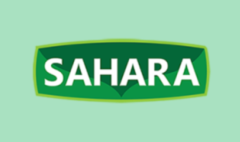Corn in Indonesia – PT Seger Agro Nusantara
June 15, 2023 2023-06-16 13:14Corn in Indonesia – PT Seger Agro Nusantara
Basic Information
Company Overview
Established in 2009, PT Seger Agro Nusantara (SAN) is a leading food commodities trader in Indonesia, specializing in corn, soybean, and other commodities. PT SAN’s factories and warehouses spread across several islands with sales coverage all over Indonesia. An inclusive closed loop model was implemented in 2018 through the Partnership Program with PISAgro. The program main objectives include an increase in corn productivity and expansion of new corn fields across Indonesia.
Crop
Corn plays an important role as staple crop in Indonesia. Economically, its high yield potential and adaptability to Indonesia’s various climatic conditions makes corn a vital source of income for numerous smallholder farmers, thus contributing significantly to poverty alleviation and rural development.
Corn also holds cultural significance in Indonesia. It is deeply ingrained in traditional cuisines and rituals, reflecting the country’s rich culinary heritage. Its abundance also enables the production of affordable and nutritious animal feed, thus supporting the growth and development of the livestock sector, which helps in meeting the protein requirements for Indonesia’s growing populations. Moreover, the versatile application of corn in various value-added products such as snacks, breakfast cereals, starch and sweeteners also contribute to job creation and economic growth in the country.
Location
PT SAN’s inclusive closed loop model initiative is located in Sumbawa, Nusa Tenggara Barat (NTB). NTB is a province in Indonesia that holds opportunity for agricultural development with its favorable soil fertility and abundance in water resources like rivers, lakes, and water reservoirs. However, the region presents the challenge of vulnerability to climate variability with its period of droughts and unpredictable rainfall patterns. The province’s overall limited access to technology and limited access to agricultural education also poses a challenge to smallholder farmers. Through the Partnership Program 56,800 smallholders have been impacted within NTB and across the country.
Point of Departure
Prior to the Partnership Program, farmers in the region faced challenges of low farm productivity. This issue was difficult to remedy as smallholders encountered financial constraints arising from their lack of financial access as no financial institutions partnered with them. Moreover, similarly to the rest of the province, farmers only had limited knowledge and training on the Good Agricultural Practice (GAP) and Good Handling Practice (GHP). Coupled with these issues, they face uncertain in market access without having the offtaker to buy the harvest. With all these issues compounding, sustainability was not a priority and they had not attained sustainability certifications.
Approach
Inputs
PT SAN collaborated with inputs company to provide quality seeds, fertilizer, and pesticide in order to increase productivity and efficiency.
Financing
The Partnership Program facilitated access for farmers to KUR loan programs to allow for financial access.
Government/Regulatory
The government assisted in providing quality seeds, local field assistance, and support of agricultural irrigation & machinery.
Market Access
The Partnership Program brought farmers closer to the market access by absorbing local farmer’s assistance
Knowledge
PT SAN collaborated with the Ministry of Agriculture to assess smallholder farmer’s knowledge about GAP (Good Agriculture Practice) & GHP (Good Handling Practice).
Key Partners & Stakeholders
- Offtaker: PT. SAN directly buys the farmer’s harvest
- Government/Regulatory: Ministry of Agriculture (Indonesian Center for Food Crops Research and Development)
Program Impact
| Key Area | Before | After |
|---|---|---|
| Productivity | Low Productivity (3t / ha) | Increased farmer productivity to 6t / ha |
| Market Access | Uncertain in market access without having a guaranteed offtaker to buy the harvest | Farmers now have guaranteed offtaker |
| Financial Access | No financial institution partnered to help with access to finance | Financial institutions provide KUR, grants, or loan to farmers |
| Capability Building | Limited knowledge and training on the Good Agricultural Practices (GAP) and Good Handling Practices (GHP) | The Ministry of Agriculture assisted in assessing farmers' GAP and GHP |
| Social Impact | Farmers lacked the necessary inputs and financial access to grow their farm productivity and income | Improved farmers' livelihoods through increase in income |
Related posts:
- Wiki Wirausaha: Platform Digital Kemitraan Inklusif Sebagai Inovasi KADIN Indonesia untuk UMKM Indonesia
- Webinar International Chamber of Commerce (ICC) Indonesia dan Kadin Indonesia: Solusi Logistik Bagi UMKM
- 9 Produk Prioritas WKU Perdagangan KADIN Indonesia
- WKU Perhubungan KADIN Indonesia Mendukung Digitalisasi UMKM Melalui Program “UMKM Go E-Commerce”
- Membawa UMKM Ke Switzerland melalui Program International Trading House Kadin Indonesia dibawah WKU Hubungan Internasional
- Pemberdayaan Petani Bambu di Banten Lebak oleh WKU PED Kadin Indonesia



